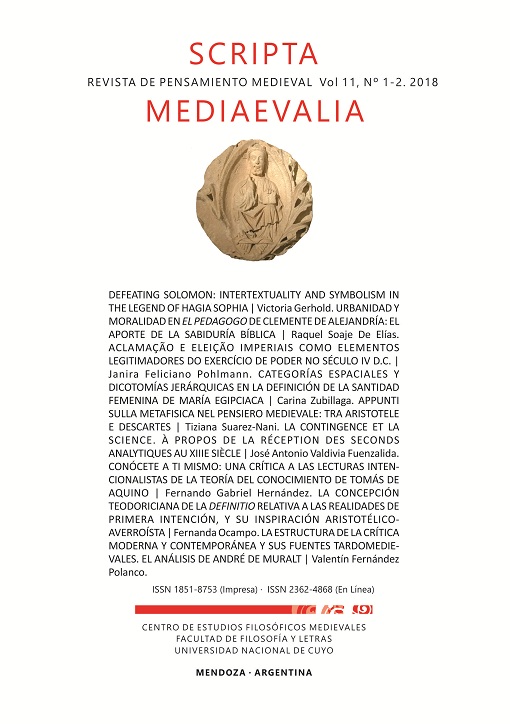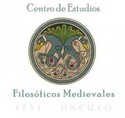Appunti sulla metafisica nel pensiero medievale: tra Aristotele e Descartes
Palabras clave:
metafísica medieval, Tomas de Aquino, Duns Escoto, Meister EckhartResumen
Estos apuntes esbozan tres modelos de la metafísica en la Edad Media: los de Tomás de Aquino, Juan Duns Escoto y Maestro Eckhart. Si bien estos autores comparten la herencia y el imponente marco conceptual de la Metafísica de Aristóteles, sus propias sensibilidades y orientaciones filosóficas los llevan a elaborar tres formas distintas de «metafísica». Tomás de Aquino, apoyándose en la interpretación aristotélica de Avicena, considera la metafísica como una ontología general, la cual engloba una teología natural arraigada en la física y la cosmología. Juan Duns Escoto concibe también la metafísica como una ontología, pero la cimenta en un concepto unívoco del ente y rehúye toda intervención de la física en el conocimiento del primer principio de las cosas. Maestro Eckhart rechaza tanto la mediación de la ontología como de la física en la elaboración de la metafísica, que él concibe como una teología negativa que lo lleva a formular el concepto de Dios como "Uno". René Descartes opera una síntesis de la tradición filosófica medieval y de su propia visión de la mecánica: para él la metafísica no es ya cima final de la filosofía, sino raíz de todo saber y garantía de la veracidad de la nueva física.
Descargas
Publicado
Cómo citar
Número
Sección
Licencia
Derechos de autor 2019 Scripta Mediaevalia

Esta obra está bajo una licencia internacional Creative Commons Reconocimiento-NoComercial-CompartirIgual 3.0.






































